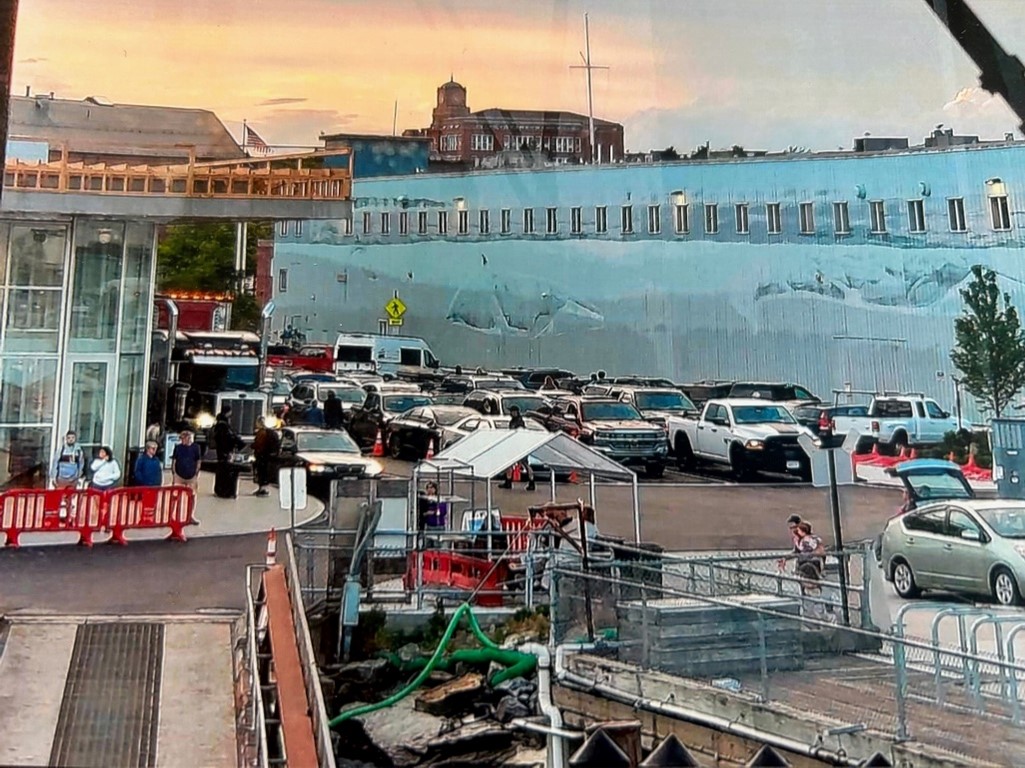Operations Committee – Subcommittee to develop recommendations for reducing vehicle congestion at the CBL terminal on Wednesdays.
Context: The current rate tariff that established a non-commercial vehicle rate of $36.65 for Wednesdays was put into place ten years ago to enable island residents an opportunity to transport their vehicle at a significantly lower rate for medical and other appointments off-island. Since inception, “Cheap Wednesdays” have become a popular day for residents and visitors as well as contractors to bring their car over to Peaks – resulting in extremely long wait times. The CBITD Board of Directors has asked the Operations Committee to develop a set of recommendations that alleviate some of the vehicle congestion on Wednesdays.
The subcommittee is currently soliciting ideas from the community to inform the first of two working sessions beginning in August. These sessions will be open to the public. If you have suggestions, please email them to us at: moc.s1734788266enily1734788266abocs1734788266ac@ee1734788266ttimm1734788266ocbuS1734788266noits1734788266egnoC1734788266.
Scope: While we understand that vehicle congestion can occur on other days of the week (notably on weekends and holidays) as well as on Peaks Island, we are only focused on Wednesdays on the Portland side.
Next steps: After collecting suggestions, the subcommittee will meet to review. The working sessions, once scheduled, will be noticed and included in the Board of Directors calendar available here on our website.
Meeting information: The subcommittee will meet on Tuesday, September 19th, at 5:30 PM. To access the event for attendees, please click here. The event password is CBL123, and from phones, it is 225123. When dialing in, the event phone number is +1-408-418-9388, and the meeting access code is 2347 733 1202.
Frequently Asked Questions:
1) How do I get involved?
Members of the public are encouraged to attend one of the Congestion Subcommittee working sessions (schedule TBD) to share ideas or can also send them via email to moc.s1734788266enily1734788266abocs1734788266ac@ee1734788266ttimm1734788266ocbuS1734788266noits1734788266egnoC1734788266. There will also be ample opportunity for public feedback as the recommendations are developed and shared with the Board.
2) Can CBITD charge a different rate for non-resident vehicles on Wednesdays?
No. CBITD is a public transit entity with federal requirements in place to prevent discrimination including discrimination between residents and non-residents.
3) Why is the scope of this subcommittee limited to the Portland side On Wednesdays? Why not expand the scope to include congestion on Peaks Island and on the weekends?
This is a starting point for future efforts, and we hope to identify solutions that we might be able to implement on other days to reduce congestion. The issues on Peaks are complicated by a lack of physical space.
4) Why can’t more vehicle lanes be added?
CBITD has a long-term lease with the City of Portland for the terminal which includes a required public right of way through the site. The limited space available must be utilized for all operations including freight, passenger and vehicle service.
5) Could CBITD add a vessel to the fleet that could accommodate commercial vehicles?
Casco Bay Lines is restricted by the Public Utilities Commission to a fleet of no more than five vessels (four active and one spare). Additionally, the enabling legislation that created the Casco Bay Island Transit District requires that CBITD be the only provider of regularly scheduled ferry service to the regulated islands.
6) What about requiring vehicle reservations?
This is something the subcommittee will be exploring.
7) Won’t the larger vessel solve the problem?
The replacement vessel for the Machigonne will increase maximum vehicle capacity from 12 to 16 automobiles in part because it separates freight and bicycles so that they are no longer comingled with vehicles and also because it will have a “truck” lane enabling more cars to fit alongside commercial trucks should they be present.
8) When would any changes take place?
We are targeting changes that could be implemented in 2024.
